Interview: Small Sur (w/ Bob Keal)
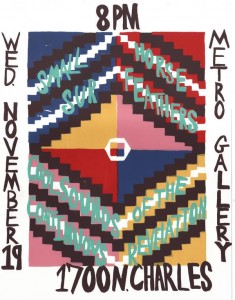 We’ve lavished praise upon Small Sur’s first full-length, released earlier this year. And over the course of the year, their live performances have become more and more vital and assured. Given their album is one of my favorite releases all year, and the fact that Bob and crew have a show coming up at Metro Gallery this Wednesday with Horse Feathers (Kill Rock Stars), I dropped by Bob’s house to chat about all things Keal and Small Sur.
We’ve lavished praise upon Small Sur’s first full-length, released earlier this year. And over the course of the year, their live performances have become more and more vital and assured. Given their album is one of my favorite releases all year, and the fact that Bob and crew have a show coming up at Metro Gallery this Wednesday with Horse Feathers (Kill Rock Stars), I dropped by Bob’s house to chat about all things Keal and Small Sur.
Read on, intrepid musical explorer. And enjoy this previously unreleased track, “Weeds.” This cut will likely be reworked for the next album.
Audio clip: Adobe Flash Player (version 9 or above) is required to play this audio clip. Download the latest version here. You also need to have JavaScript enabled in your browser.
MP3: Small Sur – Weeds
Aural States: I wanted to explore what, early on, got you into music.
Bob Keal: My family never really listened to music as a kid. I think I remember 2 tapes my Dad had: a George Strait tape and a Robert Palmer tape with that song Simply Irresistible on it. I listened to country radio as a kid in elementary school. I played trumpet in the band and kind of fell out of that after 8th grade. Didn’t start playing guitar until freshman year of college. I had a guitar when I was a kid since I bought one during junior high, but never played it I guess.
AS: Where were you going to college?
BK: Creighton University in Omaha.
AS: Did that have any effect on what really took as far as style?
BK: Well, maybe a little back-story would help with this: I grew up in the Mid-West. I went to high school in Battle Creek, NE, a town of 997 people. There wasn’t much alternative culture there so I pretty much listened to Incubus, Limp Bizkit. When I went to college I went through an abbreviated third-wave ska and pop-punk phase. Sophomore year, I mostly listened to Christian music after my dad passing away. Coming out of that, my junior or senior year, I started getting into quieter music. I didn’t start writing until like 2004, which is when I was listening to a lot of quieter stuff.
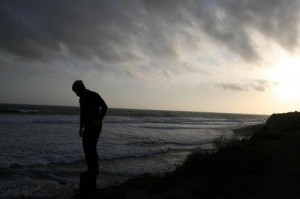 AS: Do you think any of those old tastes creep in?
AS: Do you think any of those old tastes creep in?
BK: The only thing that creeps in is a bit of emo music; I listened to a lot of Pedro the Lion. I think he’s crept in here or there, vocally somewhat. I don’t think I can really lose or escape the melodies that David Bazan uses.
AS: When you started writing and playing, what did music do for you?
BK: I think at first, it was like “oh I’m goin to college I should learn the guitar” and the somewhat ulterior motive that girls like the guitar. Realistically though, I think I was just interested in music and became more interested in college. I really needed a creative outlet but didn’t know quite what, so I just picked up the guitar.
When I was starting to write music, I was driven by feeling like once in a while I could express myself really clearly, lyrically. I started becoming much more interested in the lyrics than the music. I still can’t write without the music, I can’t write poetry or anything. But I started expressing things in a stark, simple, matter-of-fact way, and that happened a couple of times and I really liked it.
AS: Can you pinpoint the time when it really took off for you, and became something you wanted to passionately pursue?
BK: I think it was after I recorded the EP in 2005 with my friend John in California. After that, I thought “I really like this” and liked the songs. I liked the feeling it gave me, to have them for myself and show them to my close friends. The feeling to know that I was expressing myself in a way that I felt was very clear, gave me an outlet. I needed that.
AS: How much of an influence was your dad, both him and what happened, on that whole process and your evolution?
BK: Huge on where I am as a person. He was a great man. He definitely influenced my way of being, astronomically. With music, I would say it took me to those places where I was interested in music initially. The quieter darker stuff, like Elliot Smith and Bright Eyes. I tended towards music that was a little bit sadder, more ridden with depression. I don’t think I was depressed, but I think I needed someone to express those things for me. That definitely pushed it that way. Now, once in a while, it’ll come back up and I’ll write about it. I guess it still provides an outlet for that expression.
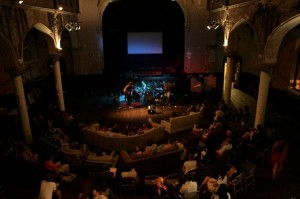 AS: Did it enable you to express those things more readily?
AS: Did it enable you to express those things more readily?
BK: Yeah probably. I think there are many things that I’ve expressed through music that I wouldn’t have otherwise. A certain energy through the process of creating and expressing these emotions.
AS: Do you find it more rewarding to record or perform?
BK: I don’t love recording but I love having a record. I don’t personally enjoy doing any of the technical aspects of recording. I’ve been wanting to learn how to set up mics for recording lately. But I’m not interested in running the computer or anything like that.
Right now, I’d really like to do more recording. But I’m also really enjoying playing live a lot at the moment. It’s really hard for me because I don’t ever feel like the songs are fully realized live. I’m not sure what they’re missing, but in my opinion they’re always missing something. It bugs me that I don’t feel like the live show is complete.
AS: Well there’s always the variables of the moment. Whether it’s bad sound, tech difficulties or that chatty person at the bar in back.
BK: Yeah that’s tough for us. We have 4 members, mostly because if we wanna go out of town, it’s harder to pack 6 people into a huge van versus 4 people into a mini-van. So we are always thinking “well now we have to figure how to do all this stuff with just 4 people.”
We’re exploring new options now. We’re thinking of doing more texturing with loop pedals to give it more bottom. And I know it’s not loud now, but I’m also hoping to scale back, to get to a more controlled set.
AS: So you don’t enjoy the post-production process. But how does the song-writing process work for you? Do you sit down in sessions and just write?
BK: It pretty much just happens when I’m playing the guitar. I’ll come up with a melody, play a line and sing with it. If I have some lyrics I adlib that I like, the song tends to be written. If I don’t, it won’t; it’s actually not a very good process. I’ve got a lot of partial songs with lyrics that I’ve messed around with for so long and really don’t like, but I don’t know how to write anything else.
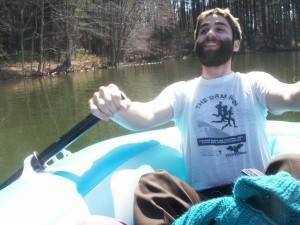 AS: That just means when you hit it big, you’ve got lots of B-sides to release and sustain your career on.
AS: That just means when you hit it big, you’ve got lots of B-sides to release and sustain your career on.
BK: Yeah there you go!
AS: So you’re not the type of person who can book some studio time, go in, write and track it, and after a set amount of time…out pops a record?
BK: That’s the funny thing. I get more inspiration at practice than at home, by myself. We kick ideas around and have a really good idea jamming on stuff. So I think I might be able to do that, but it would probably be pretty difficult. I don’t have any problem writing music, but I have a much harder time writing lyrics.
AS: So for the ideas and inspirations of songs, do the band members you are recording with have an equal role, or is it more weighted towards your ideas?
BK: I would generally say it’s been ideas I have, and we flush them out and try different things together. We didn’t sit down and say “we’re gonna work on this for 8 months,” it was more “we wanna have this done by May, it’s April…let’s record this thing.” This was the case with We Live in Houses Made of Wood…the EP was recorded in 2 days. The guys this time, Andy and Austin, brought some ideas to the table. Austin was doing all the engineering and overdubs too. That was sort of the process this time for the album, Austin and I worked really closely on this one together. Still I’d say the skeleton comes from my ideas.
AS: So the name Small Sur…where did it come from?
BK: I was spending the weekends at Big Sur whenever we would while I was living in LA. My good friend Michael, his brother Kyle, was going to play the Folk Yeah! Festival at Big Sur. We were planning to goto the festival, a big caravan of us drove up. We were hanging around, having a good time. A few of the songs came from that weekend…”Big Sur” was written that weekend and other tracks were directly inspired by it.
After that, I was talking to Kyle about the artwork for the EP, and he came up with the name Small Sur and doing the artwork as a minituarized version of the weekend. At the time, we actually planned to switch the name every record…but that turns out to not be really smart if you want anybody to hear your stuff. So we just kept it.
AS: On a broader perspective, does that mentality from that weekend inform or inspire Small Sur as a project?
BK: Sort of. I would say more that that weekend, spending time outdoors with good friends, relaxing, hiking, is just what I like to do. I don’t do it as much as I think I should, but it’s just what I enjoy. The rhythm of a weekend like that, the way you can relax outside with friends like that is unique. In that way, I would say the weekend is influential, but it’s just part of the broader story.
AS: So what is the broader story you are trying to tell with Small Sur? Let’s focus on the full-length.
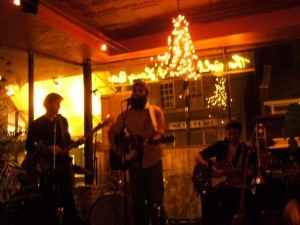 BK: I’m still really interested in the idea of lyrics that are frank and simple, but still have poetic depth to them. Musically, I’m not so sure. We’re trying to keep space involved in the music, keep it open while still involving lots of different elements and experimenting where possible and when it sounds OK. But simplicity is still the idea.
BK: I’m still really interested in the idea of lyrics that are frank and simple, but still have poetic depth to them. Musically, I’m not so sure. We’re trying to keep space involved in the music, keep it open while still involving lots of different elements and experimenting where possible and when it sounds OK. But simplicity is still the idea.
AS: It borders on minimalist. The music, as you said, is really spacious. The lyrics are pretty sparse and direct. The cadence of both the lyrics and music is very deliberately spaced.
BK: Yeah, I don’t know what the scales are. I think it’s a sort of pentatonic thing a lot of the songs have been coming out in lately. The lyrics and guitar melodies always seem to be the same and I like it that way. So they follow each other. I like to have the music build and come to a pinnacle or maybe not, but to have the energy continue throughout. The way we tracked the record worked out in that way. Building within the songs as well as the record.
AS: The record is pretty transportive as well; if you closed your eyes and listened, you wouldn’t necessarily know that you aren’t in the woods somewhere. Was that intentional and something you kept an ear out for?
BK: I think so. When Adam Cook mixed it, he knew what we were interested in. He knew we wanted to keep lots of space and not let things get too clouded, and that’s an important part about being in the wilderness for me. You’re somewhere you can hear a bunch of different noises.
Also, it was more deliberate in that the field recordings of birds I did in Pennsylvania…it was supposed to be like they are where you are while you’re listening to this thing that’s in a different place. Like from “Tones” into “The Wind,” the birds are supposed to be with you while you are listening to the music. The music also happens to be nostalgic in that it lets people’s imagination take them wherever they feel like going.
AS: Who embodies what you would like your music to become, if there is any such person or artist?
BK: More than anything, modern musicians I enjoy…Will Oldham has influenced it in the past few years. More recently Akron Family, and drones and repetitive structures. Just setting up a path for a song and not falling off it; it just repeats. Maybe Asa Osborne from Lungfish, some of his side projects like the Pupils, inspires some of that. I really enjoy how it’s meditative and repetitive, yet enough change so that it’s not boring. That’s the idea for our music: there’re not going to be crazy changes, but there will be enough change that it’s just on the other side of boring.
AS: At this point, your music is very organic feeling. But you say you are getting into repetitive drone which can be very cold. Have you tried fitting these sounds into your music yet?
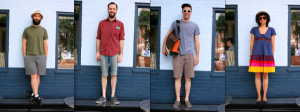 BK: For the live show we’ve been having a drone playing sometimes during 3 or 4 songs. It’s warm enough that it’s not cold…at least it doesn’t feel as cold or electronic as it could. I’m not really opposed to that sound though, because I think what we build around it maintains the organic nature of the music. The drone is just there for keeping things solid…really emphasizing that root note. It stays away from coldness that way.
BK: For the live show we’ve been having a drone playing sometimes during 3 or 4 songs. It’s warm enough that it’s not cold…at least it doesn’t feel as cold or electronic as it could. I’m not really opposed to that sound though, because I think what we build around it maintains the organic nature of the music. The drone is just there for keeping things solid…really emphasizing that root note. It stays away from coldness that way.
AS: Have you written any new material experimenting with this yet?
BK: Well I recorded the song “Weeds” with my friend Nathan in Pennsylvania with that in mind. We’re talking about bringing more organic drones in the live show. Like I’m learning the flute, looping some of the sax stuff. Our new bass player Jamie Saltzman is an upright bass player. So I’m working in the real instrments a little more. But I’m not afraid of the electronic stuff, using keyboards or anything. It’s not a purist thing.
AS: Have you started thining about the next record?
BK: We’ve been talking. Hoping to start recording sometime soon so we don’t feel rushed. We can take 8 months, working here or there, kind of piece it out. We’re also still excited about getting this record out more. Doing a couple mini-tours in the winter and spring.
There’s a demo of a song called “I Will Lie Down,” and “Weeds” will probably be on the next one as well. Beyond that, maybe a practice recording or two of some songs are really the extent of what’s tracked.
AS: Switching gears, how has being in Baltimore affected your music?
BK: I never played a show of my music until I moved to Baltimore. I may have sung a few songs at an open mic night in college. We recorded the EP in spring of 2005, moved out here in July. But I haven’t played in California at all.
Moving to Baltimore, I met a lot of people here that were really kind about the music. Mike at the Beechfields helped me put out the EP and was instrumental. From there, just meeting friends I’ve been influenced by people. Not really directly in my music, but in the chance to play for other people, listen to other people make good music. There are a lot of people who make quieter, really interesting music around here. It’s more a people aspect than anything.
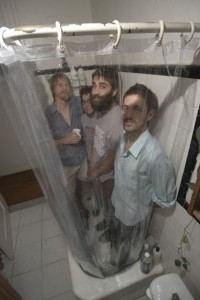 AS: I think before you’ve mentioned that you feel like quieter music might get a short shrift around Baltimore. Thoughts on that?
AS: I think before you’ve mentioned that you feel like quieter music might get a short shrift around Baltimore. Thoughts on that?
BK: I don’t think quiet musicians are getting the shaft. It’s more that Baltimore is a rock town. People in Baltimore, they listen to and make rock music. With MICA there’s the art rock or whatever going on. People are accustomed to enjoying louder or harder music than I or other people might be playing. It hasn’t been difficult, but sometimes, in general wherever you are, it’s easier to get someone to come out to a show if it’s harder, more in your face, rather than you know “let’s sit down and experience this thing together.”
But for the most part, I think we’ve got a fair shake. People are interested and come out to shows.
AS: It’s interesting because lately, I feel like more and more people have lamented to me about the lack of a stronger folk scene. Places for more traditional music, like Appalachia. In that regard, folk divorced from rock, there is a definite vacuum.
BK: Yeah it seems to be. My neighbor Pete, he makes gourd banjos after the style of Africa in the 17th and 18th centuries. He’s a really interesting guy and makes really beautiful banjos. Banjopete.com! I know there’s a small community of people he knows here who are interested in traditional American music. He’s really interested in African string band stuff, things that came out of slavery (as far as I understand). He goes to a lot of fiddle contests in the region. But yeah it seems like there’s not a lot happening, a lot of hootenannys going on or anything…
AS: Would you consider yourself more of a rocker than a folkie?
BK: Well I definitely don’t have alot of knowledge about traditional folk music. So in that sense definitely. But I think folk as a modern term, I’m definitely more of a folk artist than a rock artist in my mind. It’s more rock than it is folk, in the technical sense. I don’t think we’re a folk band by any means, but I think if you have an acoustic guitar, a lot of people just say you play folk music, or singer/songwriter music.
AS: Do you have a preference for either or, as far as going to a good show?
BK: If I like the music, I’ll goto a whatever show. I love Vincent Black Shadow, Pontiak. It’s really just a matter of if I have a personal connection to them or I like the music, I’ll goto a show…I don’t really listen to much music at home.
AS: How is it having a lot of really active friends in the music community? Andy and Jen from Wye Oak pulling duty in multiple bands, Andy Abelow playing tons of shows around town, Caleb…
BK: It’s really great. Working with Andy Abelow, Austin, Jamie…it’s nice working with people who have their own things going on and their own ideas happening in their heads. It helps with the creative process. There’s a lot going on in the community in general in Baltimore.
AS: Have you stumbled into any odd collaborations yet?
BK: Nothing yet, not odd at least…YET.
 AS: Have you been playing with Caleb and Wye Oak much recently, or was the gig at Hope Night a one-off sort of thing?
AS: Have you been playing with Caleb and Wye Oak much recently, or was the gig at Hope Night a one-off sort of thing?
BK: I think I’ve played with Caleb at El Rancho Grande a couple of times…Andy (Stack) recorded with us, covering upright and piano. We haven’t been playing together much though. They’re busy…I’m busy so it’s hard. But I am definitely thinking ahead to recording…Jenn’s voice is amazing and Andy’s just talented across the board. It’s really cool to have friends around who are talented and willing to work on things together. It was a great time at Hope Night. It always feels fresh to play with a new musician.
AS: So what do you guys have planned for the rest of the year?
BK: We’ve got a show Nov 19th at Metro Gallery with Horse Feathers. They’re awesome…on Kill Rock Stars. We’re doing a night with them in Brooklyn at Union Hall a couple days later. We’re going to Jamaica Plain for a show, and hopefully Lancaster on the 23rd. In December we’ve got a southern trip planned…DC, NC, VA. I’m thinking probably not scheduling more beyond that because I’d like to start recording and get into recording mode. Maybe not, I’ll probably play a show or two. But it seems more efficient the other way.
Related posts
- Aural States Fest 2009: Live Audio – Andy Abelow feat. Caleb Stine, Bob Keal, John Varrone, Bethany Dinsick, Austin StahlThis was sort of a Make A Wish foundation type...
- Interview: True Womanhood (w/ Melissa Beattie, Thomas Redmond)True Womanhood headline at the Metro Gallery today, Wednesday Feb...
- Interview / Exclusive Audio: Sri AurobindoCheck our world premiere download of the first track off...
- Interview: Gogol Bordello (w/ Eugene Hutz)Aural States: So I am dying to know, you were...
- Interview: The Swimmers (w/ Steve Yutzy-Burkey)People Are Soft the new album from The Swimmers, is...





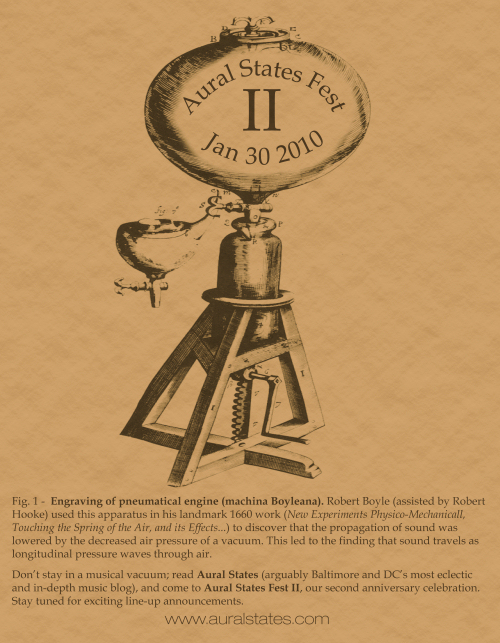
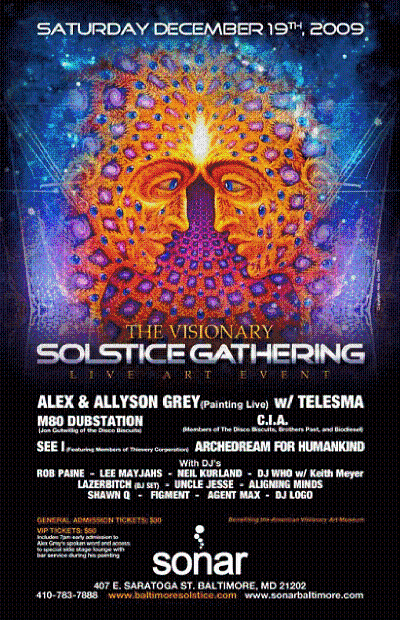









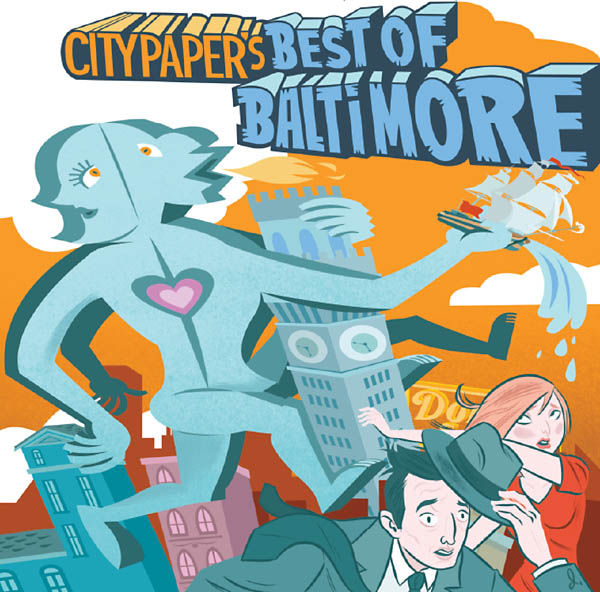
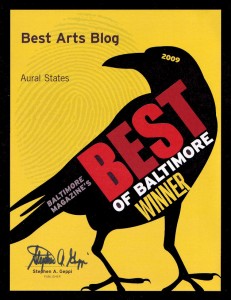


 Double Dagger: Masks EP
Double Dagger: Masks EP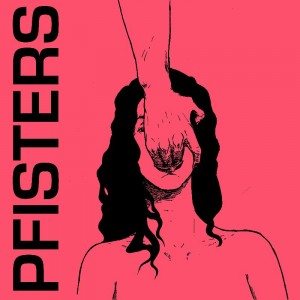 Pfisters: Narcicity
Pfisters: Narcicity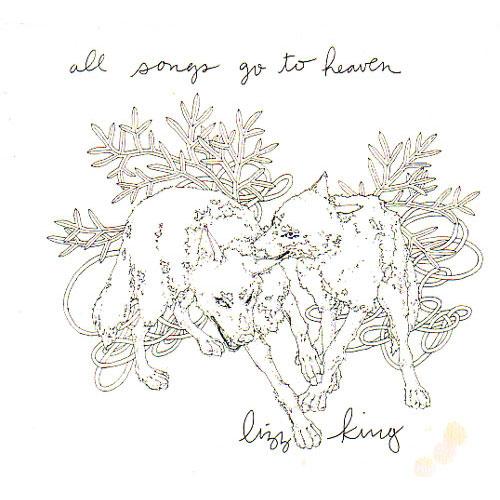 Lizz King: All Songs Go To Heaven
Lizz King: All Songs Go To Heaven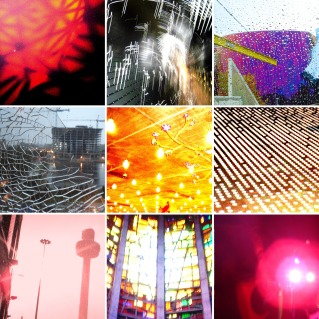 Imperial China: Phosphenes
Imperial China: Phosphenes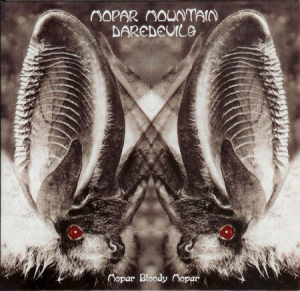 Mopar Mountain Daredevils: Mopar Bloody Mopar
Mopar Mountain Daredevils: Mopar Bloody Mopar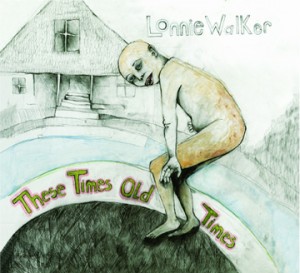 Lonnie Walker: These Times, Old Times
Lonnie Walker: These Times, Old Times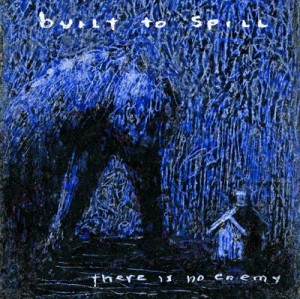 Built to Spill: There Is No Enemy
Built to Spill: There Is No Enemy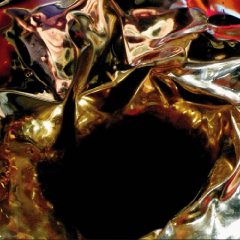 Hypnotic Brass Ensemble: Hypnotic Brass Ensemble
Hypnotic Brass Ensemble: Hypnotic Brass Ensemble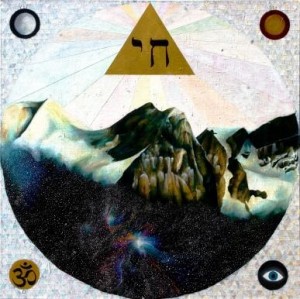 Secret Mountains: Kaddish EP
Secret Mountains: Kaddish EP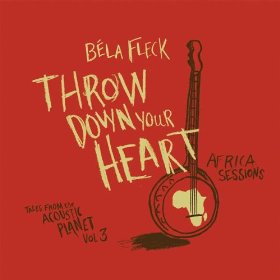 Bela Fleck: Throw Down Your Heart: Tales From the Acoustic Planet, Vol. 3 -Africa Sessions
Bela Fleck: Throw Down Your Heart: Tales From the Acoustic Planet, Vol. 3 -Africa Sessions Lands & Peoples: Lands & Peoples EP
Lands & Peoples: Lands & Peoples EP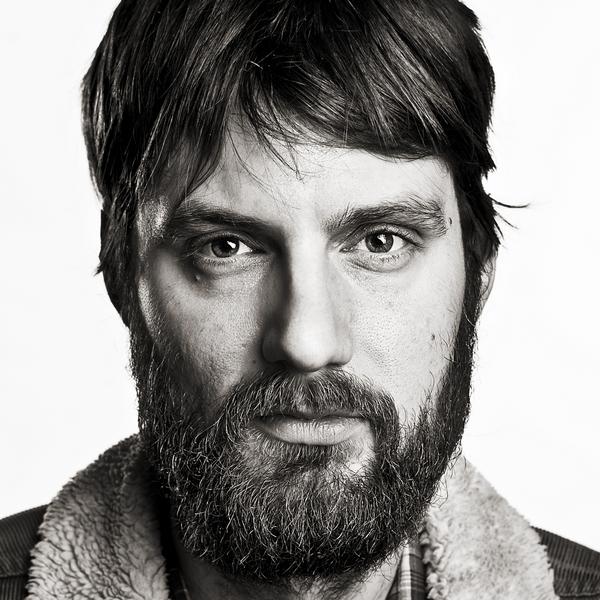 Caleb Stine: Eyes So Strong and Clean
Caleb Stine: Eyes So Strong and Clean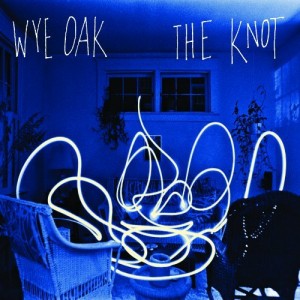 Wye Oak: The Knot
Wye Oak: The Knot Pontiak: Maker
Pontiak: Maker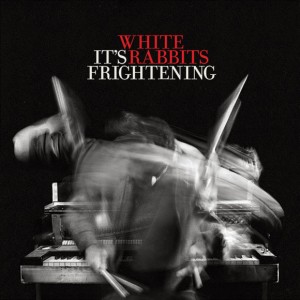 White Rabbits: It's Frightening
White Rabbits: It's Frightening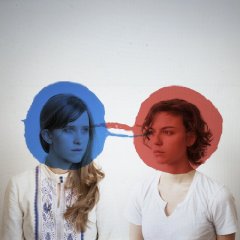 Dirty Projectors: Bitte Orca
Dirty Projectors: Bitte Orca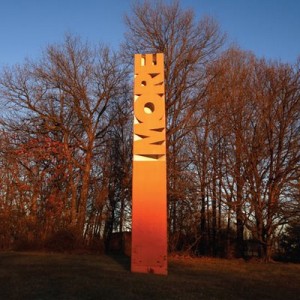 Double Dagger: More
Double Dagger: More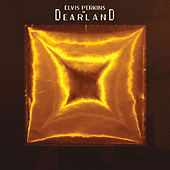 Elvis Perkins in Dearland: Elvis Perkins in Dearland
Elvis Perkins in Dearland: Elvis Perkins in Dearland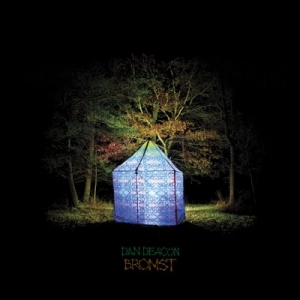 Dan Deacon: Bromst
Dan Deacon: Bromst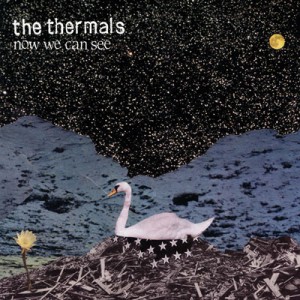 The Thermals: Now We Can See
The Thermals: Now We Can See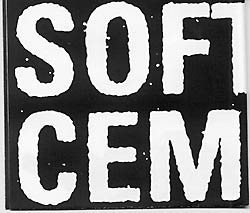 Soft Cement: Think About It EP
Soft Cement: Think About It EP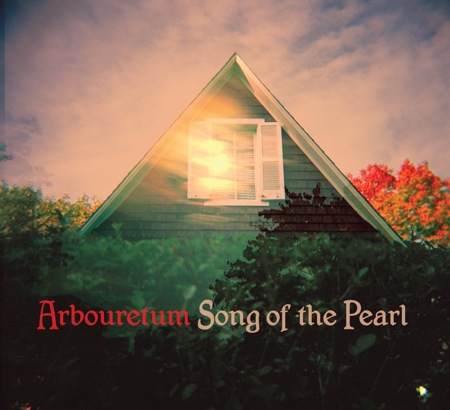 Arbouretum: Song of the Pearl
Arbouretum: Song of the Pearl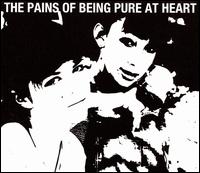 The Pains of Being Pure at Heart: The Pains of Being Pure at Heart
The Pains of Being Pure at Heart: The Pains of Being Pure at Heart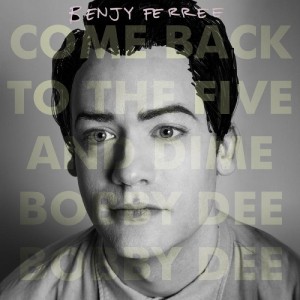 Benjy Ferree: Come Back to the Five and Dime, Bobby Dee Bobby Dee
Benjy Ferree: Come Back to the Five and Dime, Bobby Dee Bobby Dee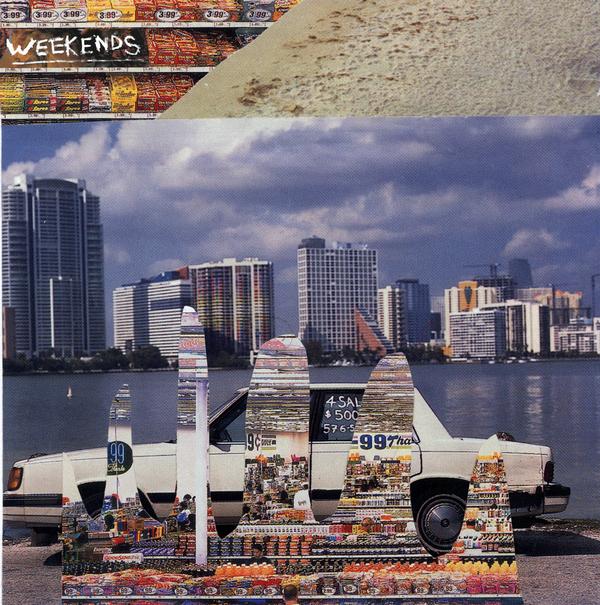 Weekends: Weekends
Weekends: Weekends Height With Friends: Baltimore Highlands 12" LP, Limited-Run Vinyl Only
Height With Friends: Baltimore Highlands 12" LP, Limited-Run Vinyl Only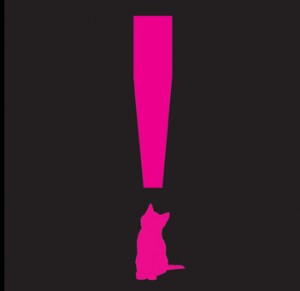 Caverns: Kittens! EP
Caverns: Kittens! EP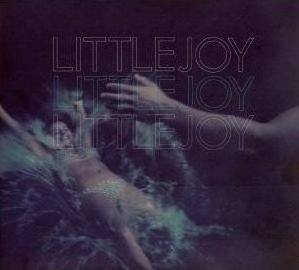 Little Joy: Little Joy
Little Joy: Little Joy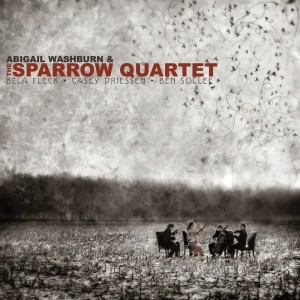 Abigail Washburn & the Sparrow Quartet:Abigail Washburn & the Sparrow Quartet
Abigail Washburn & the Sparrow Quartet:Abigail Washburn & the Sparrow Quartet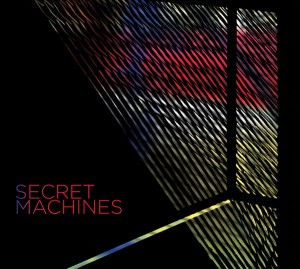 The Secret Machines: Secret Machines
The Secret Machines: Secret Machines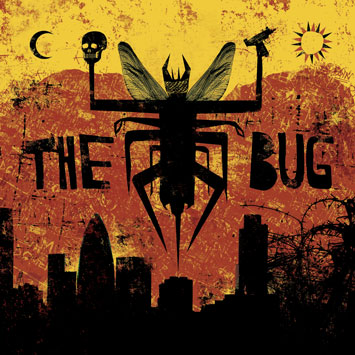 The Bug: LondonZoo
The Bug: LondonZoo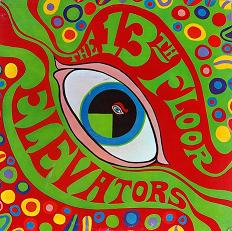 13th Floor Elevators: Psychedelic Sounds of the 13th Floor Elevators (Vinyl Mono LP only)
13th Floor Elevators: Psychedelic Sounds of the 13th Floor Elevators (Vinyl Mono LP only)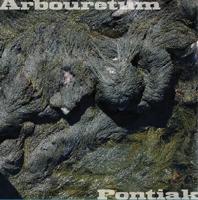 Arbouretum/Pontiak: Kale (Vinyl LP only)
Arbouretum/Pontiak: Kale (Vinyl LP only) AbeVigoda: Skeleton
AbeVigoda: Skeleton ImperialChina: Methods: EP
ImperialChina: Methods: EP
wonderful. i’m going to play their album right now, thanks for the inspiration greg.
Great great stuff guys. Thanks so much for this. I linked to it from Splice yesterday:
http://www.splicetoday.com/music/an-interview-with-small-sur
Taker easy.
this was a really strong piece. i’m always 6 months behind the times.